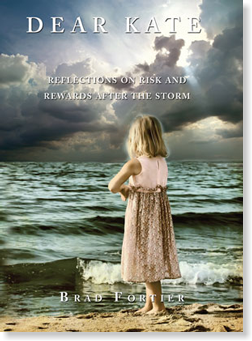On his fourteenth birthday, a boy receives a horse as a present and all the villagers say, “How lucky,” and the Zen Master says, “We’ll see.” When he is a teenager, he falls off the horse and breaks his leg and all the villagers say, “How unlucky,” and the Zen Master says, “We’ll see.” Not long after, there is a war and all the young men are enlisted to fight except the boy who still has a broken leg. All the villagers say, “How lucky,” and the Zen Master says, “We’ll see.”
For centuries, Buddhists have used this story to teach followers about the fleeting nature of all things. It is an attempt to guard us against the tendency to assign emotionally charged labels to circumstances and events in life.
As I write, the debate has already begun over whether Federal Reserve Chairman Ben Bernanke’s policy of keeping interest rates artificially low ultimately contributed to the uprising in Egypt that is spreading throughout the Middle East. The metaphysical theory of the butterfly effect comes to mind. If a man buys a beach home in Florida with credit he never repays, could it spark a riot halfway around the world?
To answer that question, first we need to acknowledge that the financial crisis in 2008 was far more significant than a temporary decline in the value of our retirement accounts. To truly understand where we are today, we should reflect on what got us here. America’s insatiable desire to maintain a certain social stature meant we would stop at nothing to obtain the latest tastes and trends. The result was an over leveraged consumer, and after two decades of keeping up with the Jones’, the consequences finally came home to roost.
As everyone who has borrowed money before knows, the monthly debt payment we make is composed of both principal and interest. The higher the interest rate is, the higher the monthly payment. So the Federal Reserve Chairman, in charge of setting interest rate policy for a nation in debt, wanted to ensure that the borrowers remained solvent. Thus, the Fed arbitrarily forced borrowing costs as low as possible to give us time to get out from the overwhelming burden of debt we had accumulated.
In addition to manipulating interest rates, the Fed has also been engaging in a strategy known as quantitative easing, which sounds complicated but is in fact deceptively simple. Essentially they are just creating money out of thin air and then using that money to buy bonds, or the debt our nation issues to finance itself. We are fighting debt with more debt.
Flooding the world with money inevitably has repercussions, and in this case, higher commodity prices are among them. The rising cost of food has not had much of an effect in America yet, but the same cannot be said for people in developing countries who can least afford the inflation.
Economic issues are at the center of the protests in the Middle East, but instead of focusing on the want and poverty that are driving calls for reform, most investors are more concerned about the prospect of rising oil prices. The question most often posed to me by clients now is what effect the turmoil will have on their investment strategy.
If we should have learned anything from the past few years, it is the danger of making emotionally-charged investment decisions. Sir John Templeton is known as one of the greatest value investors of our age. He always used to say that the most expensive phrase ever uttered by the average investor is, “It’s different this time.”
Ask yourself what the Zen Master might say when asked if things are really different this time. Would he not simply say, “We’ll see”? With that in mind, I will offer one closing piece of advice – stay the course and focus on your long-term objectives. Rather than concocting doomsday scenarios about the economics of instability, perhaps our time would be better spent analyzing how our actions are affecting not only ourselves but the rest of the world, too.














